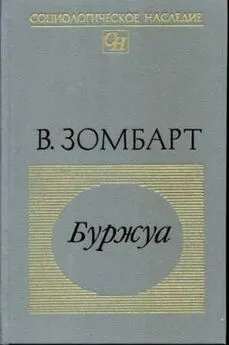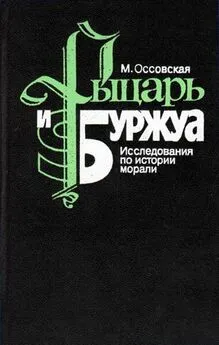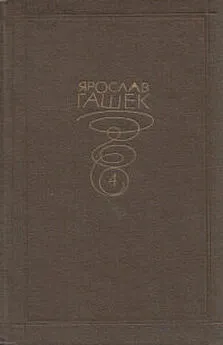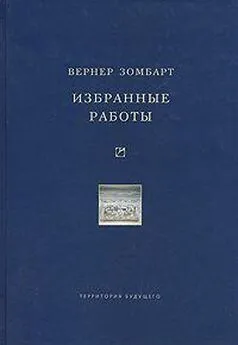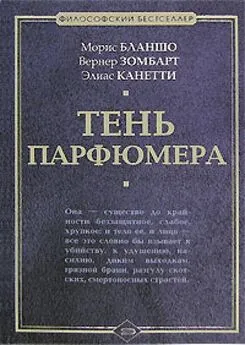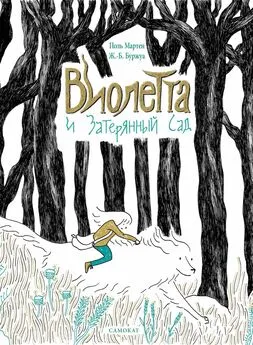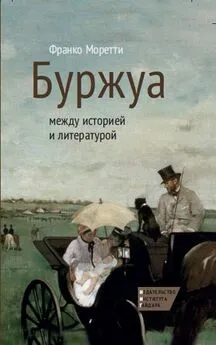Вернер Зомбарт - Буржуа
- Название:Буржуа
- Автор:
- Жанр:
- Издательство:Наука
- Год:1994
- Город:Москва
- ISBN:5-02-013444-9
- Рейтинг:
- Избранное:Добавить в избранное
-
Отзывы:
-
Ваша оценка:
Вернер Зомбарт - Буржуа краткое содержание
Как создался дух нашего времени и в каких формах он ныне проявляется, — вот что пытается описать настоящая книга, путем изложения генезиса носителя этого духа и его представителя — буржуа. Для того чтобы представления читателя никогда не терялись в царстве теней абстракции, но, напротив, были всегда полны созерцаний живой жизни, я поставил в центр моего исследования самого человека и выбрал то заглавие, которое эта книга носит. Однако лишь духовная сторона человеческой разновидности — буржуа — будет нас занимать, а не его общественные отношения: это выражено в подзаголовке: «Этюды по истории духовного развития современного экономического человека».
http://fb2.traumlibrary.net
Буржуа - читать онлайн бесплатно полную версию (весь текст целиком)
Интервал:
Закладка:
148. Gianozzo: «Dipoi ie spese pazze sono quelle quali facte meritano biasime, come sarebbe pascere in casa draconi о altri anima li piu che questi terribili, crudeli et venenosi». «Lionardo Tigri forse? Gianozzo: Anzi, Lionardo mio, pascere scelerati et vitiosi uomini… Vuoisi figure quanto una pestilevzia ogni uso et demesti chezza de simili maldici raportatori et dhiottonacci, quali s'inframettono fra gli amici conoscenti delle case». W. Alberti, I.e., p. 198–199.
149a. «Sempre m'afatico in cose utile et onesta» (L.c., p. 163).
150. «…adopero l'animo et il согро et il tempo se non bene. Cerco di covservalle assai, cure non perderne punto…» (ibid. 166).
151. «…empionsi per otio ie vene di flemma, stanno acquitosi et csiaibi, et lo stomaco sdegnoso i nerbi pigri et tucto il corpo tardo et adormentato et riu l'ingegno per troppo otio s'appanna et offuscasi, ogni virtu nell'animo diventa inerte…» L.c., p. 45.
152. «Nulla si truova onde tanto facile surga disonore et infamia dall'otio. El grenbo delli otiosi sempre fu nido e cova de vitii. Nulla si truova tanto alle cose publice et private nociva et pestifero quanto sono i cittadini igniovi (ignavi) e inerti. Dell'ocio nasce lascivia: (di lascivia) naste spregiare ie leggi: del non ubbidire ie leggi segneruina et exterminio delle terre… Adunque l'otio csgione di tanto male molto a buoni debb'essere in odio» (L.c., p. 121). Муравьи и пчелы приводятся как примеры хороших хозяев (200).
153. «Chi sa non perdere tempo sa fere quasi di qualunque cosa, et chi sa adoperare il tempo coatui sara signore di qualunque cosa e'voglia» (Alberti, Della fam., 200).
154. «Per non perdere di cosa si pretio, sa nunto, io pongo in me questa regola: mai mi lascio stare in otio, fugo il sonno, n? giacio se non vinto dalla strachezza… Coci adunque to: fuggo il sonno et l'otio, sempre faccendo qualche cosa… Et perche una faccenda non mi confonda l'altra… sapete voi, figliuoli, miei, quello che to io. La mattina, prima quando io mi lievo, cosa fra me stressi io penso: oggi in sche aro io da fare? Tante cose: annorevole, pensovi, et a ciascuna assegno il tempo su suo: questo stamate, quello oggi, quello altro sta-sera; et a quello modo mi viene facto con ordine ogni facenda quasi con niuna fatica: la sera in nzi che io mi riposi racholgo in me quanto feci il di», «Prima voglio perdere il sonnoche il tampo» (L.c., p. 165).
155. «Questi (i quadagni)… di venterranno maggiori crescendo in noi colle faccende in-sieme industria et opera» (Ibid. P. 137).
156. Я заимствую это место из исторического романа (!) Димитрия Сергеевича Мережковского «Леонардо да Винчи»; перевод Каrlton Gutzkou, 31–36 (1912), 324–327. Из романа:…и все-таки мы можем принять по всему характеру этой превосходной книги, что изложение основано на источниках. Единственной ошибкой восхитительных творений Мережковского является то, что автор не указывает в приложении источников, из которых он черпал. В цитированном месте почти видно, что перед глазами М. была (наряду с другими источниками) и «Книга о семье» Альберти.
157. Agricoltura tratta da diversi antichi et moderni scrittori. Da Sig. Gabr. Alfonso a'Herjera… et tradotta di lingus spagnuola in italiana de Mambrini Roseo da Fabriano. In Venetio, 15, 1592. cm. особенно Decidazione.
158. Traduzione italiana. 1581. P. 7, 10, 12, 28 and Cap. VI.
159. Vino Tanara, L'economis del cittadino in Villa. Bologna, 1648. P. 2, 119, 202 (и след.), 269. Автор цитирует особенно характерную пословицу:
Metti il poco col poco e sopra il poco
Aggiungi anco il piu poco e di piu pochi
Un cumulo farai che non sia poco…
160. The Complete English Tradesman. 5 Aufl. 1745. Le parfait nsgociant etc. par Jacques Savary; 4 edit. 1. (1697), 31.
161. The Complete English Tradesman. 5 Aufl. 1745.
162. Franidis В. Schatzkastlein. Bergk, 1839. P. 71.
163. Знаменитое, часто цитированное место находится в (ныне лучшем и наиболее полном) издании Собрания сочинений Бенджамина Франклина A. H. Smyth,1907,2, 370 и след.
164. The Oeconomy of Human Life; англ. и нем. 178, стр. 413.
165.
«Get what you can, and what you get, hold.
It is the stone that will turn all your lead into gold»
(The Oeconomy of Life, стр. 425 443). Это изречение взято из Poor Richards Almanach, о котором речь еще впереди.
166. «In short the way to wealth, if you desire it, is as plain as the way to market. It depends chiefly on two words industry and Frugality; that is waste, neither time nor money, but make the best use of both. Without industry and frugality nothing will do, and with them everything. He that gets all he an honestly (…) and saves all he gets (necessary expenses excepted, (will certainly become rich, if that Being who governs the world, to whom all should look for a blessing on their honest) (endeavoura, doth not, in his wise providence other wise determine. Writings, ed.Smyth, 2, 370)» (В. Franklin, Memoirs, I (1833), 147).
167. Benjamin Franklins Leben, von ihm selbst beschrieben, Deutsch von Dr. Karl Muller (Reklam). S. 114–119.
168. Cette belle economic qui fait les maisons opulentes. Le negociant patriote (1779)^ 13.
169. По сообщениям f.L. Fords: А.Н. Smyth, B.F. Writings: Introduction. Vol. I (1907), 44.
170. «Mai fu nella famiglia nostra Alberta che ne'tafiichi rompesse la fede ed onesta debita, el quale onestissimo costume, quanto veggio, in la famiglia nostra sempre s'osser-vera…» (Alberti, Fam. 134). «Mai ne traffichi nostri di noi si trovo che admetesse brutezza alcuna. Sempre in ogni contracto volso no e nostri observare somma simplicita, somma verita e in questo modo siamo in Italia et fuer d'ltalia… conosciuti grandissimi mercatan-ti…» (Ibid., p. 133). «In ogni compera et vendita siavi simplicita, verita, fede et intagrita tanto со lo strano, quanto con l'amico, con tutti chiaro et netto…»
171. Так, Samuel Lamb ставил их в пример в своем прошении по поводу учреждения банка в Лондоне (1659) в Lord Somers Tracts, изд. Walter Scott, 6, 444 (и след.). Омет Fellham в своих «Observations» (1652) говорит о голландцах: «In all their manufactures, they hold a moderation and constancy, for they are as fruit from trees, the same every year that they are at first; not apples one year and crabs the next and so forever afor. In the sale of these they sale of these also are at a word: they will gain rather than exact, and have not that way whereby our citions abuse the wise and cozen the ignorant and by their infinite over-asking for commodities proclaim to the world that they would cheap all if it were in their power» (Цитировано у Douglas Campbell, The Puritan, 2 327 (и след.). О подделках и мошенничестве «the besetting sins of English tradesmen» можно еще сравнить (Цит.: Ibid.) Froude, Hist. of E. 12, 565; F.A. Inderwik, The Interregnum, P. 62, 79, 81. Те примеры мошеннических уловок, распространенных в английском деловом мире, которые перечисляет Defoe в своем «Complete english Tradesman» (Gh. XX, 5-е изд.), также не свидетельствуют о высокоразвитой солидности.
172. «Sempre daremo luogo alla onesta, che con noi sia come un publico quioto, pratico e prudentissimo sensale of qualo misuri, posi, annoveri molto bene piu volte et stimi e pregi ognfnostro acto, facto, pensiero e voglia» (Alberti Delia famiglia, 140), «quello che dara l'ultimo lustro a tutte le nostro operationi pulitissimo e splendissimo in vite, edopo noi fermissimo et perpetuissimo, diso la onesta… la quale sempre fu ottima maestra delle virtu, fedele compagna delle lode, benignissima sorella de costumi religiosissima madre d'ogni tranquillita e beatitudine del vivere…» etc. etc. Мещанское благоприличие <���«non manco e utilissimo»… E cosi sempre satisfacendo al guidicio della onesta ci troveremo richi, lodati amati et onorati L.c., p. 139 (и след.).
173. «In order to secure my credit and character as a tradesman, I took care not only to be in reality industrious and frugal, but to avoid the appearances to the contrary. I dressed plain (просто) and was seen at no places of idle diversion: I never went out fishing or shooting», etc. (Mem. of the Life and Writings of Benj. Franklin. Written by himself. I-(1883), 103).
174. «tre cosemaxime conno oportune: a chi wuee con debita diligentia mercantare. De le quale la potissima e la pecunia numerata: e oghi altra faculta substantiale. La seconda che i recerca al debito trafico: sie che sia buon ragioneri e trompto computista… La terza: e ultima cosa oportuna sie: che non bello ordine tutte sue facende debitamente disponga: acio con breuita: possa de ciascuna hauer notitia». (Lucas de Burgo. Summa de Arithnetica ec. (1494). ed. 1523, p. 198, II.
175. Quellen und Literatur zum Kapitel, «Rechnenhaftigleit». Liver Abaci издан в 1857 г. Buoncompagni; характеристика двойной бухгалтерии Fra Luca у C.L. Jager, Lucas Pacioli and Stevin. 1876. Относительно Geschichte der Rechnenkunst следует обратиться прежде всего к общим сочинениям по истории математики: Libri. Hist. des sciences mathem. 2 Vol. 1838; N. Cantor. Vorlesungen liber Geschichte der Mathematik. 2 Bde, 1892. F. Unger, Methodik der praktischen Arithmetik. 1888. Bd. 2. О счетности и cчетных книгах, в частности Franz Villicus, Die Geschichte der Rechnenkunast, 1891; Hugo Grosse. Historische Rechnenbucher des XVI und XVII Jahrhunderts. 1901.
По Geschichte der Buchfuhrung (кроме уже названной работы) Brambilla J.G. Cristoforo Colombo etc. b. Atti della soc li gure di storia patria. Vol. XIX, 1889; H. Sieve-king, Aus venetianischen Handlungbuchern, Schmolers Jahrbuch. Jahrgang XXV; A. Gherardi, L'antica camera del Comune di Firenze Arch. stor. IV ser. T. 16. В остальном я отсылаю к моему изложению в «Mod. Кар.» и к указанным там сочинениям.
176. «Dicea messer Benedetto Alberti… ch'egli stava cosi I ene al mercantante sempreater lemani tincte d'inchiostro… Dimonstrava essere offitio del mercatante et d'ogni mestiere, quale abbia a tramare con qiu persone sempre scrivere ogni cosa, ogni contracto, ogni cosa etnrata et uscita fuori di bottega et cosi spesso tutto rivedere che quasi sempre avese la penna in mano…» (Alberti, Della. fam., 191–192).
Читать дальшеИнтервал:
Закладка:
